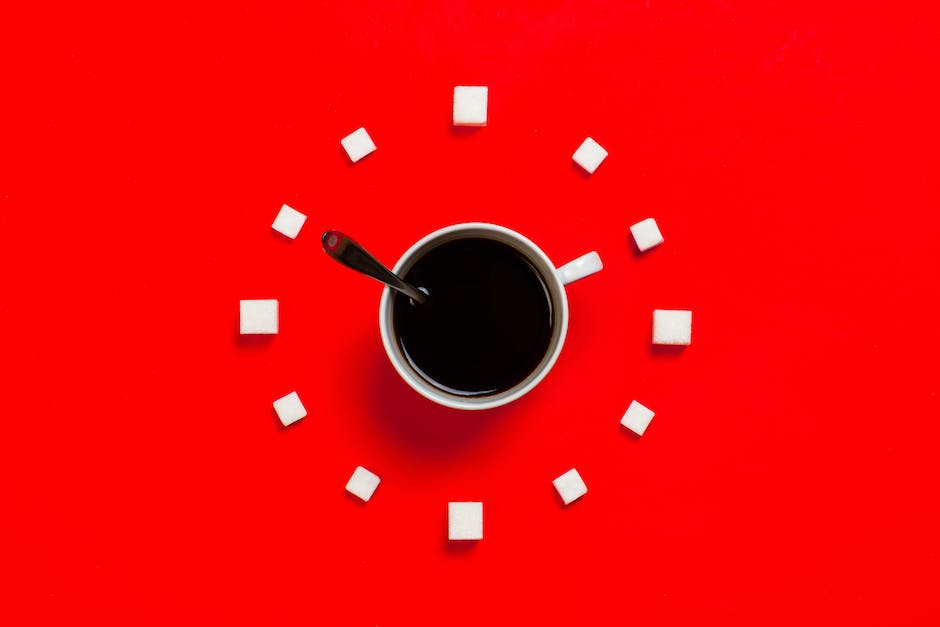Premature ejaculation, being a common sexual dysfunction in men, is often misunderstood and untreated due to various reasons including myths and taboos. Understanding premature ejaculation involves knowledge of its symptoms, causes, and impacts on sexual health and relationships. Though this is a sensitive topic, shedding light on it is crucial for the general public to promote better sexual health. Furthermore, there is a wide range of behavioral techniques that provide ways to manage and potentially overcome premature ejaculation. Among these are the commonly referenced ‘start-stop’ and ‘squeeze’ techniques, whose correct application can significantly improve sexual performance. In addition to these, a wholesome lifestyle is indispensable for optimal sexual health. Balanced nutrition, regular physical activity, adequate sleep, and mental wellbeing are all components of this holistic approach that play an essential role in helping maintain control over sexual function. Knowledge on particular foods, exercises, and relaxation techniques that enhance sexual health will be enlightened in this discussion.
Understanding Premature Ejaculation
Unraveling Premature Ejaculation: A Closer Look at its Root Causes
Premature ejaculation (PE) represents one of the most prevalent male sexual disorders, impacting approximately 20-30% of men globally. Despite the commonality of this condition, it continues to be enveloped by a shroud of misunderstanding and stigma that can make it a source of considerable distress. An unravelling of the complex mosaic that is PE warrants a deep-dive into the aspects broadening our understanding of its root causes, thereby ushering in enlightened perspectives to inform future research and treatment strategies.
One cannot commence a discourse on PE without qualifying this condition. Typically, PE encompasses two key criteria: ejaculation that frequently occurs less than one minute after penetration and a diminished sense of control over ejaculation. Taken together, these give rise to negative personal effects such as distress, bother, frustration, and/or the evasion of sexual intimacy.
The etiology of PE is multilayered, branching into psychological, physiological, and evolutionary origins. Delving first into the psychological realm, it is essential to underline the role anxiety can play in precipitating PE. Research substantiates that men with PE exhibit higher levels of sexual anxiety. Intriguingly, this can weave a self-perpetuating cycle where anxiety triggers PE and repeated instances of PE further heighten anxiety, thereby precipitating a chronic issue.
Shifting focus to the physiological domain, serotonin emerges as a prime player in the PE narrative. This neurotransmitter, heavily involved in mood regulation, notably also exerts control over ejaculation. Men with lower levels of serotonin in their brain regions were found in numerous studies to experience PE, underscoring the biochemical facet of this condition.
Last but not least, the evolutionary lens on PE posits a rather divergent perspective. From the survival of the fittest standpoint, quick ejaculation could have been favored by natural selection to optimize reproductive success in prehistoric times when copulation might be frequently interrupted or endangered.
Simultaneously, burgeoning evidence portrays a solid genetic basis for PE. Studies of twin cohorts have pin-pointed a substantial inherited component to PE, with monozygotic twin pairs displaying higher concordance rates compared to dizygotic twin pairs.
Whilst understanding these root causes represents a crucial stride forward, PE’s complex etiology advocates for a comprehensive, multimodal approach intertwining both pharmacological and psychological interventions in managing the condition. Concurrently, an acknowledgement of the need to normalize conversations around PE, eclipsing outdated stigmas with sound scientific enlightenment, stands as a simultaneous imperative.
When viewed from its many angles, PE can be seen as an overlapping network of interconnected causes, depicting a vivid picture of how this condition comes to be. By unearthing this mosaic, we pave the way for advances in knowledge and research, elucidating the path towards optimal medical interventions and strategies to improve the quality of life for those affected by premature ejaculation.

Photo by magalhaesalex on Unsplash
Behavioral Techniques
The exploration of non-pharmacological, behavioral techniques for delaying ejaculation presents a compelling domain in contemporary sexual health research. As previously discussed in the preceding section, multimodal approaches have emerged as ideal responses to premature ejaculation (PE). This report now turns its focus to effective behavioral techniques in this arena, offering potential navigation pathways in the personal and clinical management of PE.
The first technique, widely recognized for its efficacious outcomes, is pelvic floor muscle exercises. A suite of controlled studies reveals a correlation between weak pelvic muscles and PE. Strengthening these muscles, particularly the pubococcygeus muscle which affects the ability to hold erections and delay ejaculation, enhances ejaculatory control. Thus, daily exercises proposed by therapists, akin to Kegel exercises, can be instrumental in managing PE over time.
The second technique is the ‘Start-Stop’ method. This behavioral modification technique involves sexual stimulation until the individual is close to the point of ejaculation, followed by a cessation in stimulation. This process is repeated several times before allowing ejaculation, essentially training the body to prolong the excitation phase and delay gratification. Quite analogous to this is the ‘Squeeze’ method, where physical pressure is applied to the penis to reduce erection and control imminent ejaculation.
In a similar vein, Masturbation before sexual encounters can demarcate a promising tactic. This tactic aims to decrease sensitivity and arousal levels in subsequent sexual experiences, resulting in delayed ejaculation. Individual variations can influence the efficacy of this method, directing focus towards the customization of behavioral techniques.
Alongside these self-management strategies, Cognitive Behavioral Therapy (CBT) has seen an upswing in acceptance as an effective non-pharmacological intervention for PE. This therapy model tackles the psychological parameters around PE, such as performance anxiety, by changing unhelpful thought patterns and behaviors. Exposure therapy, an aspect of CBT, fosters acclimatization to sexual stimulation and mitigates hyperarousal, thereby delaying ejaculation.
Finally, combining these behavioral techniques with other dimensions of intervention – pharmacological treatment, couple therapy, lifestyle modifications – to address PE presents a comprehensive approach. Current research continually underscores the integrated nature of sexual response, suggesting that an amalgamation of methods will likely serve the most effective in achieving satisfactory sexual experiences.
In conclusion, these various behavioral techniques for managing PE, backed by extensive research, can dexterously cater to the individualistic nature of sexual health concerns. As further empirical data emerges, it is hoped that an exhaustive set of strategies can be unified into a standard protocol that shelves the one-size-fits-all model, thereby providing tailored and effective solutions for individuals dealing with PE.

Healthy Lifestyle Choices
Building upon these critical insights, the significance of a healthy lifestyle and emotional well-being as pillars for managing premature ejaculation cannot be understated. It is essential to delineate the relevance of conscious adaptation in routine habits, and incorporation of emotional wellness techniques that have shown promise in empirical studies.
A salient aspect of a healthy lifestyle related to combating premature ejaculation includes maintaining a balanced diet. Nutrients play an imperative role in the overall functioning of our bodies. In this context, inclusion of certain food items rich in magnesium and zinc, such as shellfish, poultry, lentils and fortified cereals, may contribute towards curbing PE as these minerals potentially enhance the reproductive functions and improve control over ejaculatory reflexes. However, these claims necessitate stringent scientific examination.
Consistent physical activity is influential in enhancing sexual health as well. Regular aerobic exercise, particularly one that includes moderate-to-high intensity pelvic floor exercises, has been reported to strengthen the muscular structures involved in ejaculation and thus improve ejaculatory control. Interestingly, yoga, with its multifaceted physiological benefits, also has traditions that include exercises focusing on enhancing sexual well-being and control.
Turning to behavioral aspects, smoking and excessive alcohol consumption could potentially impair sexual performance, and in turn, exacerbate premature ejaculation. As such, they should be avoided for an optimized sexual health profile.
In parallel to cultivating a healthier lifestyle, emotional well-being too is instrumental in mitigating the repercussions of premature ejaculation. The use of mindfulness-based practices, for instance, has surfaced as a meaningful approach to managing PE. Mindfulness may help alleviate performance anxiety by promoting focused attention on the present moment, thus reducing subjective feelings of rush and urgency that may precipitate PE.
The role of a healthy sleep schedule and stress management should not be disregarded, given their demonstrated correlation with improved sexual health. Techniques that foster relaxation, concentration and self-regulation, such as meditation, breathing exercises and progressive muscle relaxation, could become adjuvant strategies in the therapeutic approach to premature ejaculation.
Furthermore, maintaining a supportive and understanding relationship greatly aids in maintaining emotional balance. Constructive communication and mutual support can play an important role in dealing with the stressors associated with PE.
Though these health practices and emotional well-being techniques are not definitive solutions to premature ejaculation, they constitute practical and complementary strategies that could be incorporated into a comprehensive therapeutic approach. It is strongly advisable to undertake these lifestyle modifications with the guidance of a healthcare provider to receive personalized advice.
In conclusion, thereby, adopting a healthier lifestyle and focusing on emotional well-being could assist in managing PE by instilling confidence, reducing anxiety, and providing improved control over physiological functions. This emphasizes the need for future research to continue exploring these multifaceted relationships, thereby potentially offering an integrated, whole-person approach to the management of this complex sexual health concern.

While any subject related to sexual health like premature ejaculation might be loaded with misconceptions and embarrassment, understanding its roots and multifaceted solutions is vital. Practicing behavioral techniques such as the ‘start-stop’ and ‘squeeze’ do not only foster greater control over one’s response but also enhance understanding of one’s body. Simultaneously, it cannot be overstated how much healthy lifestyle choices can impact sexual health positively. Balanced diet, regular exercise, good-quality sleep, and mental stability are all critical pillars of a robust approach to overcoming premature ejaculation. The wealth of knowledge about specific foods and exercises, coupled with relaxation techniques that contribute to better sexual health, can start one on the path towards a satisfying sex life. In the end, it’s about embracing these tools and information to better navigate towards overcoming premature ejaculation naturally and efficiently.
